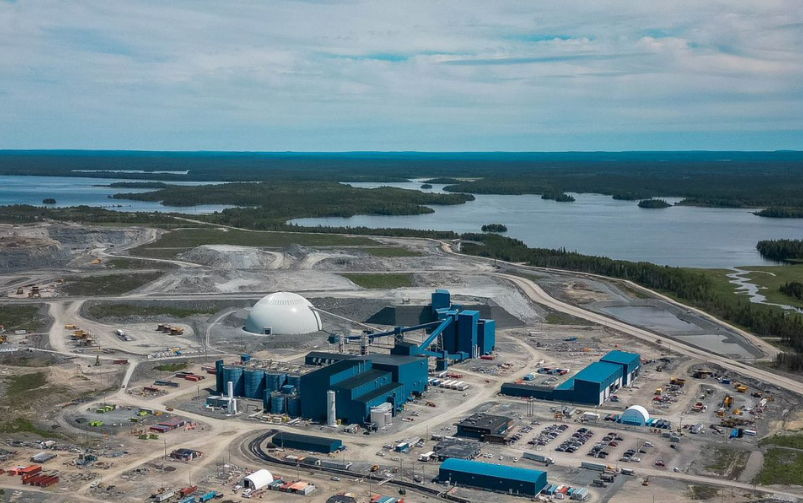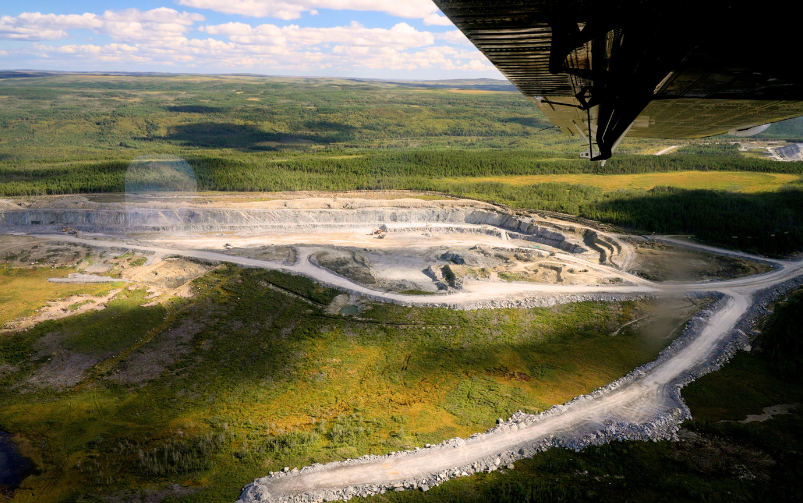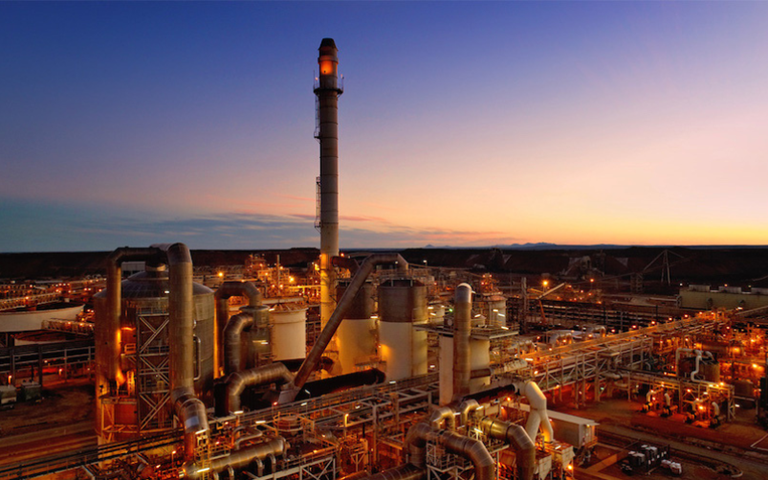First Quantum Minerals halted mining at its Ravensthorpe open-pit nickel and cobalt operation in Western Australia for two years due to the decline in nickel prices. Courtesy First Quantum Minerals.
Low prices and mounting supply from Indonesia are forcing many nickel miners outside the Southeast Asian country to review, suspend or write-down operations.
In January, Vale Base Metals chairman Mark Cutifani resurrected talk of working together with Glencore to access potential synergies at the companies’ nickel operations in Ontario’s Sudbury basin.
“During the course of this year we should work out whether there’s something we can do together or not,” he said in a Jan. 10 interview with Reuters at the Future Minerals Forum in Riyadh, Saudi Arabia. “Certainly, that is one of my priorities.”
“We’ve got some interesting thoughts on what is possible, [including] tailings [waste] and some of the old areas that could be re-done and we are working through that,” he noted, adding “it makes sense to do something where we are sharing infrastructure.”
Vale owns and operates five mines, a mill, a smelter and a refinery in the region, while Glencore owns the Nickel Rim South mine and the Onaping Depth project.
Glencore declined a request for comment on Cutifani’s remarks or whether they may have been motivated by an effort to cut costs in a challenging nickel market. But a spokesman for Vale Base Metals confirmed in an email to CIM Magazine that, “we regularly evaluate strategic alternatives and partnerships to create value for shareholders. As previously disclosed, we continually assess potential synergies with Glencore’s Nickel Rim mine in the Sudbury basin.”
Around the same time, Wyloo announced in January it would put its nickel operations in the Kambalda mining district of Western Australia on care and maintenance, at the end of May.
The nickel operations consist of the Cassini mine and Northern Operations, which are respectively 128 kilometres and 53 kilometres south of Kalgoorlie. Wyloo informed BHP that it will not be able to fulfill its offtake agreement, which is set to expire at the end of next year, to supply ore to BHP Group’s Nickel West operations near Perth.
BHP’s nickel operations are hurting too. In February, the miner said it would take a post-tax US$2.5 billion impairment (US$3.5 billion pre-tax) on the carrying value of its Nickel West operations and its West Musgrave project.
“This is an uncertain time for the Western Australia nickel industry, and we are taking action to address the current market conditions,” BHP CEO Mike Henry said in the company’s half-year 2024 exceptional items update on Feb. 15. “We are reducing operating costs at Western Australia Nickel and reviewing our capital plans for Nickel West and West Musgrave.”
The company said it will put Nickel West’s Kambalda concentrator on care and maintenance in June, following Wyloo’s decision to suspend its Australian mines. The concentrator gets the majority of its ore feed from Wyloo’s Cassini mine and Northern Operations.
In addition, BHP said it is reviewing its development plans for Western Australia Nickel with a focus on preserving cash, which includes the possibility of placing Nickel West into a period of care and maintenance. And as for development of the West Musgrave project, BHP is assessing phasing and capital spend.
During the 2023 calendar year, the London Metals Exchange (LME) benchmark nickel prices “fell considerably as both the supply of nickel from Indonesia significantly increased and LME began accepting Indonesian-origin nickel products as part of its efforts to respond to evolving industry dynamics,” BHP said. “These unfavourable operating conditions are expected to endure for a considerable time.”
Elsewhere in Western Australia, First Quantum Minerals announced in February it would “scale back mining operations and associated processing activities” at its Ravensthorpe nickel mine due to “continued low nickel prices.” Ravensthorpe will maintain production from ore stockpiles and suspend mining from its Shoemaker Levy ore body, the company said.
In addition, Panoramic Resources suspended operations at its Savannah nickel project in January due to continued low nickel prices after appointing voluntary administrators in December.
Nickel processors in the French territory of New Caledonia, an archipelago in the Pacific to the east of Australia, are also struggling, prompting the French government to make offers of help. But that did not prevent Glencore from transitioning its Koniambo nickel operation there into care and maintenance. “Even with the French government’s proposed assistance, high operating costs and current very weak nickel market conditions means KNS remains an unprofitable operation,” the company said in a Feb. 12 statement.
In mid-March, Prony Resources New Caledonia (PRNC) was granted a €140 billion (US$155 billion) loan from the French government for its operations in the territory.
“The purpose of this loan is to enable PRNC to finance its operations at a minimum, pending the arrival of a buyer,” Adelie Garaud Ballande, Prony’s communications coordinator, told CIM Magazine via email. “This support will not allow us to ‘start over as before’ as this would lead us, once again, to a situation of risk of insolvency.”
In northern Colombia, South32 noted in its December 2023 quarterly report that it had started a strategic review of its Cerro Matoso nickel operation. “Price realizations for our ferronickel product reflected a discount of about 29 per cent to the LME Nickel Index, as structural changes in the nickel market continued to place pressure on both nickel prices and discounts for our ferronickel product,” it said.




